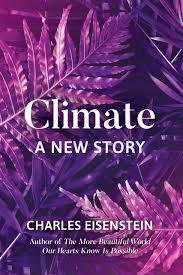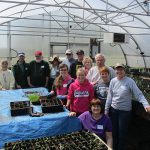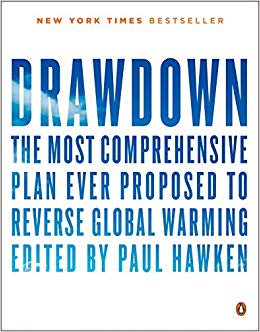
I’m compiling this as much for myself as much as to:
- provide a road map and some resources for those who desire to embark on a similar journey or to use elements of mine to “create your own climate adventure” as well as to
- serve as my “go-to” answer for anyone who posts about climate denial on any of my posts. I just don’t have time to recap this every single time. So, unless you’re willing to read this whole thing and prove with your comments that you’ve thoroughly digested everything I have shared here, I give myself permission to opt-out of our conversation thread. I have given this a lot of thought over the years and your link from the one scientists who disagrees with the vast majority of scientists does not impress me nor will it take me off my task of trying to actually do something about climate crisis myself as well as help others who are trying to do the same. Deniers are not my priority.
The first thing I want to acknowledge is that this is a complex issue. This is the main reason that memes and shot-from-the hip comments on posts don’t work for me. One author I think has addressed the complex nature of climate quite well is Charles Eisenstein in his book, Climate: A New Story (<<< the whole book is available at this link). He outlines the core themes of the book in this video:
My key takeaways from the video:
- Current policy and rhetoric and thinking about climate change is still heavily influenced by what Charles Eisenstein calls the ‘geo-mechanical’ view, which sees Earth as this fantastically complicated, wonderful machine. The main issue has become ‘levels of greenhouse gases.’ and something as complex as planetary health gets reduced to a linear measure. This pushes aside anything that is not easily measurable or that doesn’t fit into quantitative models.
- When the environmental movement began in the 60’s it was a love-based discourse. That has been lost. Courage doesn’t come from fear, but rather love. If we look at Earth in a purely geo-mechanical way, we aren’t loving it the way it needs and deserves as a living entity. “Even if we cut greenhouse emissions to zero, if we continue to degrade the organs and tissues of our living earth, the planet will still die a death of a million cuts.”
- It’s not that carbon dioxide isn’t important. They put more stress on an already weakened system. It’s necessary but not sufficient to only look at carbon. The priority in which Earth’s healing needs to be addressed:
- #1 – Protect and preserve the body of Gaia — anything that is still in pristine or close to pristine condition. Globally, protecting the Amazon, the Congo and other rainforests are the first priority in this realm; the Pachamama Alliance is one organization I admire that focuses on Amazon advocacy. Next — wetlands and areas of the ocean that are relatively pristine. Locally, I look to organizations like Shirley Heinze Land Trust and Woodland Savanna Land Conservancy to preserve and protect our local natural treasures.
- #2 – Regenerate the organs of Gaia. Marine permaculture, regenerative agriculture, and reforestation to heal what’s been damaged. Locally, I recommend organizations such as NWI Permaculture to learn about regenerative methods and ways of living and CommuniTree to get involved with local tree-planting efforts. Both of these organizations are members of the CoThrive Timebank (more on that later).
- #3 – Heal the tissues of Gaia. PCBs, heavy metals, pharmaceutical waste, radioactive waste, industrial pollution damage the tissues and they’ve got to stop. Locally, groups like Hoosier Environmental Council are taking legal action against steel mills that have been spilling toxic waste into Lake Michigan, causing massive fish kills and beach closures.
- #4 – Cut greenhouse emissions. In Indiana, communities are partnering with Indiana University to conduct greenhouse gas inventories and to develop climate action plans based on those findings. Michigan City and Gary are two communities that have participated so far.






